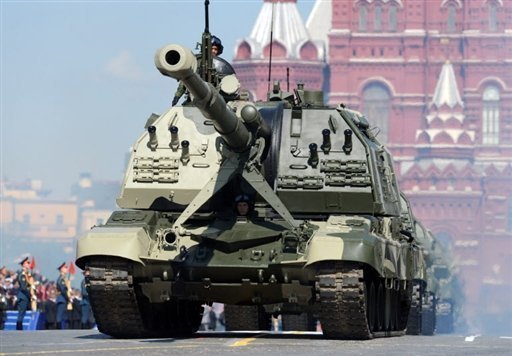
This weekend Russia unveiled its new missile defense system as part of a military parade to celebrate Victory Day (WWII) in Moscow. Put on show around Red Square was the S-400 missile defense system, which many in Russia consider to be a counterweight to American Patriot missiles. President Dimitry Medvedev spoke at the event, stating:
“Our victory over fascism is a great example and a great lesson to all nations, a lesson which is still topical today when, again and again, people appear who indulge in military adventurism. Defence of our homeland is our holy duty … We are sure that any aggression against our citizens will be decisively rebuffed.” Read more here.
The thinly veiled statement, aimed at the US and NATO, could not be more obvious. It was coupled with a statement by Vladimir Putin, who spoke more directly to Washington:
“As to the NATO military exercises in Georgia, this is of course a signal in the other direction. We really hope that today’s leaders of the United States will hit the pedal properly to put a brake on the negative trends in our … ties and take the necessary steps to make sure they really gain new substance.” Read more here.
These statements and the military parade are timely. Russia is celebrating a national holiday, but it also reaffirms Moscow’s opposition to NATO war games in Georgia, EU expansion for partnership with former Soviet nations, and continued US plans for missile defense. Indeed, even though President Bush is out of office, designs for the US’ Eastern European missile defense shield remain vague under the Obama Administration. Given US Secretary of State Hilary Clinton’s repeated call for improved relations with Russia from last week, it behooves the US to negotiate a clearer stance on issues related to Russia such as missile defense and nuclear relations.
Photo Credit: AFP.